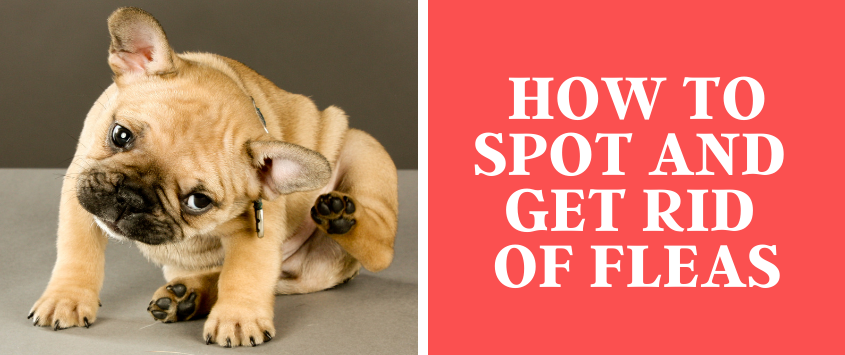Dogs can turn themselves into the funniest positions when trying to scratch that itch. And while it’s cute on occasion, when your pup starts scratching too often, it means there could be a problem with fleas that needs your immediate attention.
What are fleas exactly?
More than 2,500 different species of fleas exist, yet one is the most common among American dogs and cats. It’s called Ctenocephalides felis, or the cat flea. That’s right. If your dog has fleas, they’re most likely cat fleas.
Fleas are the most common external parasites on dogs. Adult fleas are about an eighth of an inch long. They’re reddish-brown and very thin. It’s difficult to see what they look like without a microscope (though it’s easier on a light-colored fur), but they do have big back legs. They can jump, by some measurements, upward and outward at least a foot in a single leap. And one estimation finds that for every adult flea found on your pet, there are at least 100 immature ones hanging around.
The reason for the itch is that when fleas bite, their salivary glands release a substance that causes skin irritation.
How do I know if the itch is caused by fleas?
Depending on your dog’s coat length and color, fleas can be difficult to find with the naked eye. Because fleas are so hard to find, you might need to rely on the presence of flea dirt to determine whether or not your dog has fleas. Flea dirt is actually flea poop, and it appears as specks of dirt on your dog’s skin. Fleas multiply extremely quickly, so it’s important to treat the infestation as soon as possible.
How to treat fleas
Fighting a flea infestation on your dog can be emotional and a lot of work. Treat your dog with a fast-acting oral flea treatment recommended by your vet. Then use a flea comb — dip comb in a mixture of dish soap and water to kill remaining fleas on comb. And follow up with a flea shampoo.
But really, it’s best to use a flea preventive year-round. These are available from your vet and most come in simple chews that dogs actually like to take, thanks to their flavoring. Your vet will work with you to choose the prevention method that works best for you and your dog. Keep in mind that preventives work best when used regularly year-round; simply applying for one or two months can leave your dog unprotected.
At PetWow, we believe in promoting a healthy lifestyle for our furry friends, that’s why we work hard to create a positive experience for them during their visits. More than 20,000 pet parents trust the health and grooming of their best friends to us, and we take that care seriously. To schedule your appointment, call us today at 513-738-9691 to schedule your appointment at our Highland Heights or Florence Kentucky locations, or for At Home Veterinary Care. For more pet care tips, follow us on Facebook, Twitter, Instagram, Pinterest or LinkedIn!







